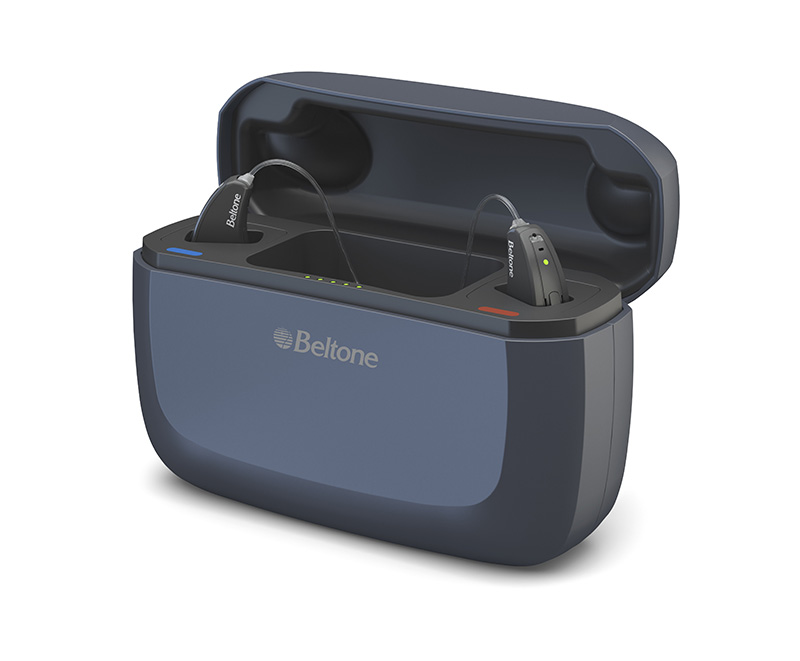Rechargeable batteries are all the rage these days
In the past couple of years, we’ve been finding ourselves having more and more conversations with our patients about rechargeable batteries when we recommend hearing aids to treat hearing loss – and for good reason! Rechargeable batteries have a lot of great benefits for hearing aid wearers (which we’ll talk about later in this blog!). But, there are also a lot of situations where trusty disposable batteries are still the better choice.
So, without further ado, let’s dig into the pros and cons of rechargeable hearing aid batteries.
First thing’s first, types of rechargeable batteries
Before we talk about specific benefits and pitfalls, let’s have a little crash course on the different types of rechargeable batteries available today:
- Nickel-Metal Hydride (NiMH) Batteries: These are the most common and oldest types of rechargeable batteries on the market for hearing aids, and they’ve been tested and perfected for over a decade.
- Silver-Zinc Batteries: While a fairly new technology, silver-zinc batteries are very promising options for hearing aid wearers, as they are both powerful and easily removable for ease of use.
- Lithium-Ion Batteries: You may have heard of lithium-ion batteries before, because these batteries are commonly used to power a lot of other technology, like smartphones, tablets, and other medical devices, too.
While each of these battery types has its own unique pros and cons, for the purposes of this blog, we’ll be evaluating rechargeable batteries in general, because the concept is the same across all three specific options and they have some universal pros and cons to discuss.
The pros of rechargeable hearing aid batteries
One of the biggest pros of rechargeable batteries is that they are more environmentally friendly than disposable ones. They need to be replaced far less frequently than disposable batteries do, and many modern rechargeable batteries are even recyclable when it does come time to replace them.
Secondarily, some rechargeable batteries can be charged inside your device, so you don’t have to mess around with tiny batteries or risk losing a battery when it pops out of the hearing aid on accident. For ones that do need to be charged outside of your device, many people still find them easier to handle than small disposable ones.
Lastly, while the upfront cost of a rechargeable battery is a bit larger, rechargeable batteries can save you money in the long run, as you won’t have to replace them as often or purchase packs of new ones all the time.
The cons of rechargeable batteries
While many people find rechargeable batteries to be more convenient, the general consensus is that rechargeable batteries are more of an inconvenience due to the fact that they rely on a charger and can’t be easily swapped (unless you want to purchase multiple rechargeable batteries and switch them out while you charge the others, which many people choose to do!).
Another big con for rechargeable batteries is that they can’t be used with all types of devices just yet. Today, rechargeable batteries are only available for some devices, so, unless you’re able to completely swap the type of device you use, using a rechargeable battery may not be an option for you.
Finally, depending on the type of device you have and the type of disposable battery you use to power that device, rechargeable batteries aren’t built to last as long as most disposable batteries are, and you’ll have to change rechargeable batteries more often than disposable ones.
–
If you’re wondering if rechargeable batteries are right for you and your hearing aid devices, get in touch with your local hearing aid specialist or hearing care provider (like the folks at Beltone Tristate!) to chat with a professional about your options and weigh the pros and cons for your specific case.
If you’re not quite ready to make the jump to rechargeable batteries just yet, we hear you (pun intended!). Did you know you can purchase disposable batteries for your hearing aids right on our Beltone Tristate website? Check out our online shop for your next battery restock.

